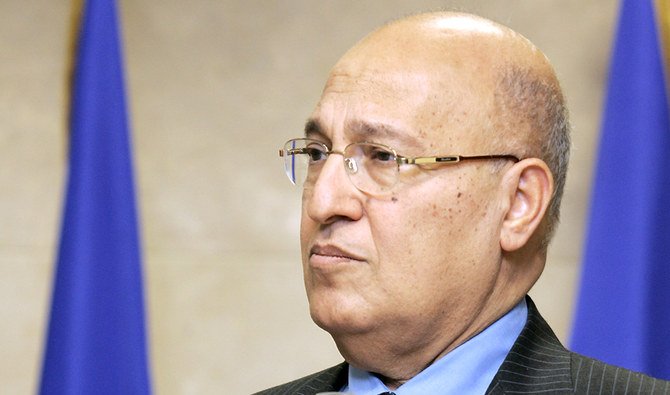GAZA CITY: As the Palestinian leadership in Ramallah considers how to respond to the Israeli annexation plan, leading figures have insisted that the dissolution of the Palestinian Authority (PA) is not an option, as the PA represents “a national achievement and the nucleus of the future Palestinian state.”
Nabil Shaath, the personal representative of President Mahmoud Abbas and his adviser on international relations who was one of the architects of the Oslo Accords that set up the Palestinian Authority in 1993, is considered one of the Palestinian leaders most committed to the survival of PA.
Asked if the leadership was considering dissolving the PA, Shaath said: “This option is unacceptable and we do not think about it at all. What is required instead is to work to strengthen it vis-a-vis the United States and Israel.”
The annexation plan, which was approved by the Israeli government with American support, targets about 30 percent of the West Bank. Analysts say it would totally destroy the “two-state solution” and the Palestinian dream of establishing an independent state on the territories occupied in 1967.
Shaath believed that the Palestinian people have many other tools at their disposal to respond to the plan.
“With the decision to cancel agreements with Israel and US, we as Palestinians entered a new stage of the struggle, which includes the struggle to isolate Israel in all international forums and to promote the boycott of Israel so it pays the price for its policies of annexation,” he said.
Shaath did not rule out the outbreak of a new intifada as one of the Palestinian tools, and said if Israel insisted on its plan, which he described as “criminal colonialism,” there were no “rules for confrontation and resistance.”
He is betting that White House foreign policy will change this year, with a Democrat victory in the presidential elections leading to a rejection of Netanyahu’s policies.
The Palestinian leadership is trying to deliver warning messages about the dangers of the annexation and its repercussions, but no one is talking openly about the option of dissolving PA.
The secretary of the executive committee of the PLO Saeb Erekat who believes annexation would mean the end of the two state solution, said in an interview to an Israeli TV channel two days ago, “If Netanyahu insists in his plan to annex West Bank, that would mean already the dissolution of the Palestinian Authority. No one then would care about whether PLO decide to dissolve the PA, not even the Israelis who are seeking to destroy it. The annexation will end any opportunity two-state solution.”
An Israeli TV channel quoted unidentified sources few days ago as saying that the Palestinian Authority had sent messages to Israel through Western diplomats that it would dissolve the PA if Israel went on of the annexation.
Ali al-Jarbawi, a professor of political science and former Palestinian minister, believes that the Palestinian leadership committed a strategic mistake in continuing negotiations without setting a time limit.
“It is not possible to abandon the agreements without ending the existence of the PA, which is the most important result of these agreements,” he said. “The existence of the PA is a consecration of the agreements, and if you want to end these agreements, you must end It.”
However, he pointed out that the option of dissolving the PA was not as simple as some think. Over more than a quarter of a century its benefits and interests have become intertwined, which makes dissolving it as difficult as keeping it in its current shape.
Political analyst Khaldoun al-Barghouti supports the Palestinian leadership’s adherence to the PA as a national achievement.
"Although the PA has attracted much criticism, in practice the PA has become a major enemy to Israel. PA fights politically and financially. There is no reason for its dissolution — in fact, its collapse must be prevented."
Barghouti expects that the annexation will lead to a “functional change” in the PA, but not its dissolution. Disengagement from the agreements was one of the changes. Israel will put pressure on the PA to retreat, but will not gamble on dissolving it.






















